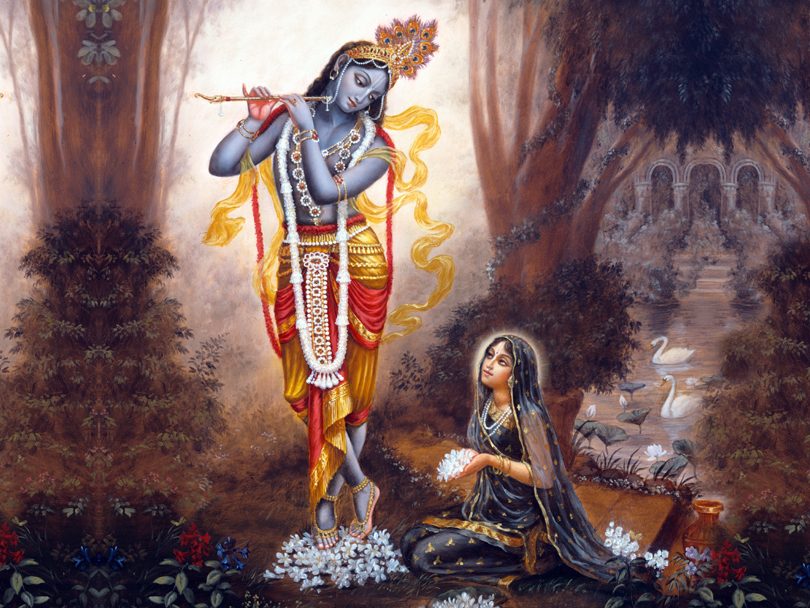Question: In Ramunjacarya Sri Bhasya, BG 18.66, He says abandon Bhakti Yoga also, as cited below. How do we understand that?
‘Relinquishing all Dharmas’ — means the complete abandonment of the notion of agency, proprietorship, results etc., in the practice of Karma, Jnāna and Bhakti Yogas which are the means (dharmas) for attaining the highest good when done as Divine Service.
Answer by Romapada Swami:
First, a small technical detail: the commentary cited in your question is directly taken from Sri Ramunjacarya’s Gita Bhasya. His Sri Bhasya is a commentary on Vedanta Sutra.
Next, Ramanuja is not indicating here that one should abandon Bhakti Yoga.
He is expressing that one should “abandon the notion of agency, proprietorship, results etc.” in the practice of Bhakti Yoga.
According to the remaining portion of Ramanuja’s commentary on this same verse, he further explains that the “relinquishment of dharmas” likewise corresponds to relinquishing expiatory (“making amends for”) rites that are meant to overcome the result of previous sinful activities. Examples of expiatory rites which are not required in the process of Bhakti, he explains, are sacrifices such as Krcchra, Candrayana, Kusmanda, Vaisvanara, Vratapati, Pavitresti, Trvrit, Agnistoma etc., which are of manifold varieties, and which are difficult to perform on account of the brevity of life. We are accustomed to hear about these rites as präyaçcitta.
The balance of his commentary emphasizes once again the importance of performing unobstructed Bhakti Yoga, the path for which Krishna personally clears the way by His own removal of reactions to His devotee’s sins.







